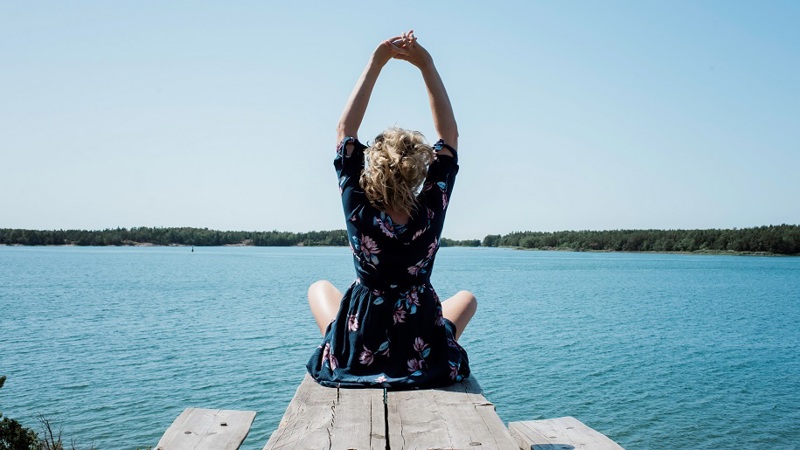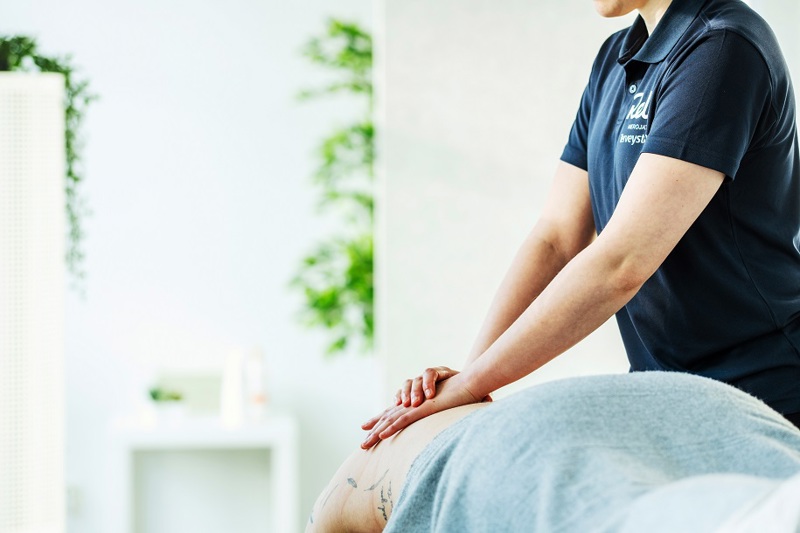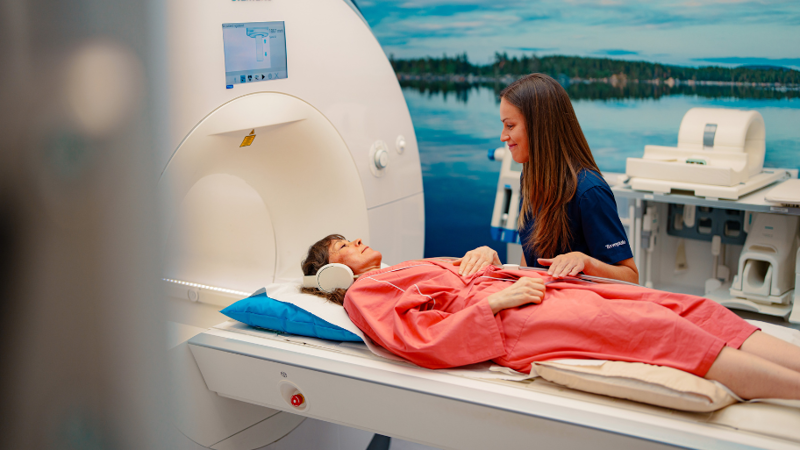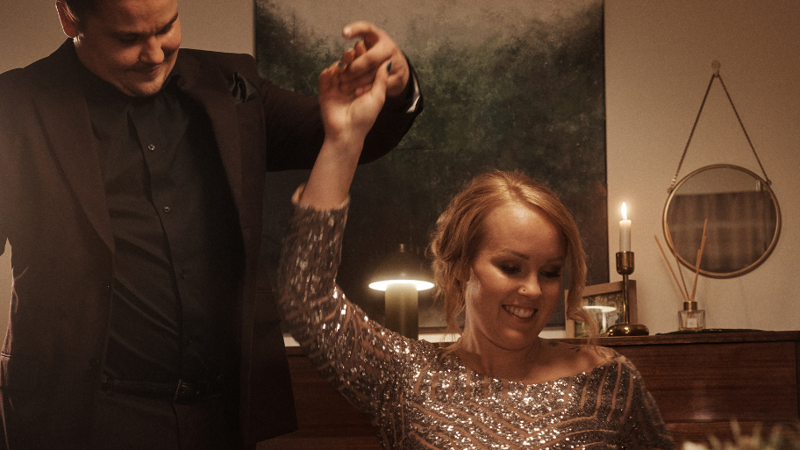Take care of your recovery in the summer too - Here's how to prepare for the holidays ahead
The holidays are approaching, wonderful! After a busy start to the year, everyone needs a break and a breather from work. However, it's best not to over-schedule your holiday planning in order to keep it restorative.

A large proportion of Finns start their summer holidays after Midsummer. For most, it is the longest holiday of the year, providing an important break from work and routine.
– On the other hand, summer and light often activate us to do more things than during the winter season. The days get longer as the evenings are no longer dark and there may be more to do. We may skimp on sleep and our recovery may be incomplete, but it may not show, says Aino Kohtala, psychologist and psychotherapist at Terveystalo.
Recovery is about recovering from stress, both on the mind and body level. It is important to consider both sides. Sometimes things that restore the mind, such as a heart rate-raising run, can be too much for our recovery-deficient bodies and our overall endurance does not return to its previous level. It is worth paying attention to recovery in small ways in our daily lives, so that the balance between recovery and stress is maintained and long-term stress is avoided.
Say no to performance
Research has shown that a single, uninterrupted, longer holiday is better for wellbeing at work than a break in parts. However, despite the positive aspects of a holiday, the point at which you take it is often a stressful one. The last few weeks can be busy, the mood can get stuck and it can be difficult to get away from work, even if you have been looking forward to it.
– You have to take care of your own recovery at all times. If you are anxious about what you have left to do at work or at home, or about how you are going to get everything done, you may have too many expectations. If the stress of the holiday is taking the form of family disputes, it is a good idea to stop and think about what is really going on: is the anxiety more to do with holiday expectations or with your own work and dissatisfaction with it?
For many, just being is alien to everyday life. Today's working life feeds a demanding attitude towards oneself and many people feel that leisure time must be used for self-development. Unreasonable expectations and the performance-oriented attitude typical of Finns can turn a nice holiday into an impossible task.
– It is easy to think that holidays and relaxation have to be earned by doing and performing. However, too tight holiday plans can easily cause stress and eat up mental resources instead of promoting recovery. A long holiday alone will not solve the problem if there are no restorative elements in everyday life, says Kohtala.
Tips for a restorative holiday:
Clarify your work situation
- Divide your work tasks into three parts: what needs to be completed before the holiday, what you will delegate to a potential summer replacement and what you prefer to leave to be done after the holiday.
- Write down the different tasks so that you know where you stand and it's easier to see the big picture. The list will help you to ensure that essential work gets done and that things that need to be taken forward during the holiday can be delegated.
- A sense of control over your work will reduce the stress of taking a holiday. It's also easier to pick up work again after a holiday if you've noted down what you left before the holiday.
Stop to think about your hopes, expectations and plans for the holiday
- Think in advance about what you want from your holiday: some people enjoy making plans in advance, while others prefer to be able to forget the clock and calendar altogether.
- Have a holiday planning session with your loved ones. Remember to listen to each other's wishes and think together about what you could do to make everyone's holiday a success.
- Make sure that even in the midst of all the things to do, there's room to be, to admire the clouds and eat strawberries.
- It's good to keep your expectations low to avoid disappointment from unrealistic goals. You will find the holiday restorative when you dare to say no to accomplishments and sometimes even to nice things if they start to fill up your holiday calendar too much.
Cut off the work-centred mindset
- It's easy to get caught up in work issues when you move from a hectic work schedule to a more relaxed pace. If possible, settle in for a break during the last few days of work.
- A variety of holiday rituals and routines can help you get away from the work routine and get into a restorative mood. A change of scenery or even celebrating the end of your holiday with loved ones can help to support the transition.
- As working life becomes a hybrid model, many teleworkers have laptops and phones sitting in their home office within easy reach. Everyone should take a moment to consider how they can transform their home environment into a holiday environment. At the very least, it's a good idea to silence the Teams from the phone and put the computer on the bottom shelf of the wardrobe, for example, to wait for the return to work.
Respect your holiday enough
- Some of us have a more flexible approach to work life, and answering a single email or phone call during a holiday does not cause undue strain. However, for the majority of employees, this is not necessary and work is left at work when they leave for their holidays. You can remind people of your limits, for example, by auto-replying to their emails - this way no one has to guess whether you are available for work during the holiday.
- Remember that holidays and time off are primarily for you, not your work. Holidays give you the chance to relax more than usual, to do meaningful things that you don't always have the time or energy to do in your everyday life.
- However, filling a holiday with only the tasks accumulated during the year can bring additional stress and pressure instead of successes and a reduced to-do list. It's not forbidden to do things on holiday, but listen to yourself carefully so that your holiday doesn't turn into a work camp.
Read more occupational health articles

Terveystalo's digital services have been awarded the internationally recognized ISO27001 information security certification.
Terveystalo's information security practices, processes, and risk management are in line with international best practices.

Does massage help relieve stress? – Touch restores and calms the body and mind
Stress is not always visible on the outside, but the body does show signs when the strain increases. According to Lassi Ylönen, a trained massage therapist at Terveystalo Rela, the body often communicates stress through subtle signs.

Circular economy and artificial intelligence boost performance and improve care
At the heart of sustainable healthcare, technology serves as a tool for improving both the quality of care and accountability. Terveystalo favors solutions that combine sustainability, cost-effectiveness, and medical expertise.

Psychologist: How to make Christmas a relaxed and personal celebration
For many, the anticipation of Christmas begins when cities are decked out in seasonal lights and the first chocolates, calendars, and gingerbread cookies appear on store shelves. Christmas carols ring out and the Tonttuparaati choir sings “Kiire jo on! Kiire jo on!” (Hurry up! Hurry up!). This warm and atmospheric celebration also brings other feelings to mind: how on earth can we get through all this without losing our joy and peace in the rush?

Terveystalo and Gosta Labs deepen their cooperation: the goal is to streamline work with a superior patient information system
Terveystalo is deepening its cooperation with Finnish health technology company Gosta Labs and investing €1 million in the company as a minority investor. The aim is to jointly develop artificial intelligence solutions that improve the quality of care and the efficiency of reception work as part of Terveystalo's new patient information system, Terveystalo Ella.

First aid preparedness in companies requires action and courage
First aid skills increase resilience, but a barometer survey of Finnish organizations' first aid capabilities published in October reveals that the number of trained personnel is alarmingly low.